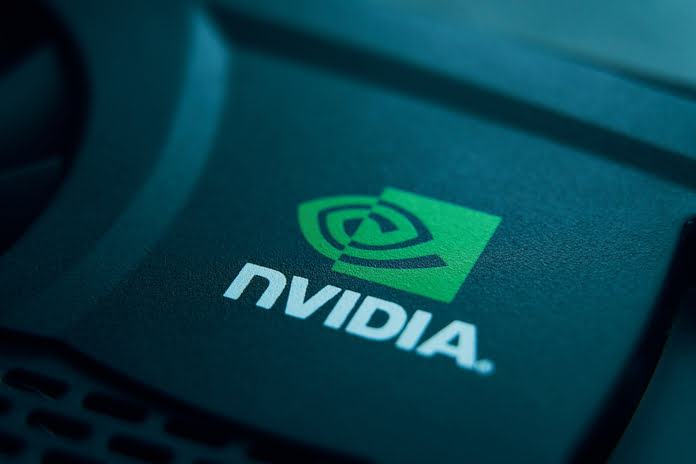Nvidia Corporation (NASDAQ:NVDA), the chipmaker at the forefront of artificial intelligence, has been a major force behind the stock market’s strong performance in 2024. Yet recent volatility in Nvidia stock performance has rattled investors, raising concerns about the overall stability of Big Tech and its outsized influence on major market indexes. Following a steep one-day loss in its market capitalization, Nvidia’s slide has turned attention to the vulnerability of the broader market, which has been powered largely by Big Tech.
Nvidia’s One-Day Stock Tumble
On a recent Tuesday, Nvidia’s stock experienced a sharp decline, wiping out $279 billion in market capitalization. This event marked the largest single-day market value drop ever recorded for a U.S. company. Though Nvidia stock performance rebounded by 1% the following day, the incident has left investors wondering if the AI-powered rally that fueled record market highs earlier this year is starting to cool.
Nvidia’s recent quarterly earnings report, while exceeding estimates for both revenue and profit, failed to meet the sky-high expectations of investors. As a result, some market observers believe this wobble may signal growing caution among investors toward the AI hype that has propelled the stock thus far.
The Influence of Nvidia and Big Tech on the Market
Big Tech companies, including Nvidia, Apple (NASDAQ:AAPL), Microsoft (NASDAQ:MSFT), Amazon (NASDAQ:AMZN), and Alphabet (NASDAQ:GOOGL), have become increasingly important to the U.S. stock market. These five tech giants alone represent more than a quarter of the weight in the S&P 500 and over a third of the Nasdaq 100. Nvidia, in particular, comprised 23% of the S&P 500’s year-to-date total return of 19.5% by the end of August.
Such concentration in a handful of companies means that Nvidia stock performance has an outsized impact on broader market indexes. Should Nvidia or any of its Big Tech peers experience significant declines, it could lead to broader market pullbacks, unless other sectors step in to fill the gap.
Market Reactions to Nvidia’s Volatility
Nvidia’s rapid rise has contributed significantly to the overall valuation of the technology sector. Even after its recent losses, Nvidia remains the top performer in the S&P 500 for 2024, with shares more than doubling this year and an impressive 800% gain since October 2022. This surge has drawn both enthusiasm and caution, as concerns about a potential bubble in tech stocks begin to surface.
Despite Nvidia’s success, some analysts believe that the stock’s growth trajectory may be slowing. “Nvidia’s earnings exceeded expectations, but the magnitude of the beats is shrinking quarter by quarter,” said Steve Sosnick, market strategist at Interactive Brokers. “That’s not lost on investors.” This deceleration, combined with rising skepticism about the sustainability of AI-driven growth, is causing some to reconsider the stock’s long-term prospects.
Implications for Investors and Market Indexes
The concentration of Nvidia stock performance in major market indexes like the S&P 500 and Nasdaq 100 means that any significant move in the stock could impact the performance of these benchmarks. Investors in index funds that track these indexes, or in exchange-traded funds (ETFs) focused on technology and semiconductors, are particularly exposed to Nvidia’s fluctuations.
Even with its recent slide, Nvidia remains an integral part of many investors’ portfolios, given its continued leadership in AI and its strong long-term growth prospects. However, its rising valuation and the broader sector’s price-to-earnings (P/E) ratio have raised some concerns about whether a bubble is forming in tech. Though the tech sector’s forward P/E ratio remains below the levels seen during the dot-com bubble of the early 2000s, the growing concentration of market gains in a few tech stocks has prompted caution among some market participants.
Conclusion: What’s Next for Nvidia and Big Tech?
Nvidia stock performance will continue to play a pivotal role in shaping market sentiment, particularly within the tech-heavy Nasdaq 100 and S&P 500. While Nvidia’s recent stock swoon may be a temporary blip, it has served as a reminder of the risks associated with over-reliance on Big Tech to drive market returns.
Investors should closely monitor how Nvidia stock performance evolves in the coming months, particularly as the company navigates the challenges of maintaining high growth expectations in a cooling market environment. While Nvidia remains a dominant force in AI and technology, future market rallies will likely need broader participation from other sectors to maintain momentum.
For now, the broader market’s fate remains tied to the performance of a few tech giants, with Nvidia stock performance continuing to be a key indicator of where the market may be headed next.
Featured Image – Megapixl









